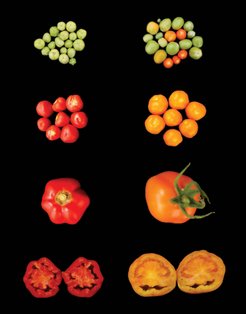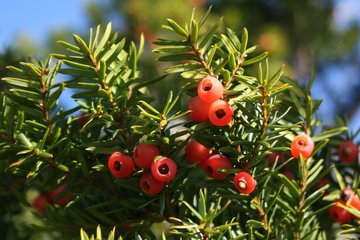What carotenoids have to do with plant yield and tolerance
Changes in carotenoid metabolism can simultaneously influence yield, stress tolerance, and nutritional content in plants
Carotenoids are secondary plant metabolites that are absorbed by humans and animals from their diet. In addition, they perform important tasks in mammals. Converted into vitamin A, they are significantly involved in growth, cell formation, reproduction and vision. β-Carotene is considered a powerful antioxidant that can counteract the cell damage caused by the so-called free radicals. However, carotenoids are not only of great importance for humans and animals, they also fulfil important tasks in plants. In a recent study published in the renowned journal Metabolic Engineering, an international team of researchers led by Juan C. Moreno of the Max Planck Institute of Molecular Plant Physiology was able to show how changes in carotenoid metabolism affect biomass production and adaptation to changing environmental conditions (fitness) in plants.

Improving yield, nutritional value and tolerance to abiotic stress are important goals of current breeding and biotechnological approaches aimed at increasing crop production and ensuring food security. Current estimates suggest that food production will need to be doubled by 2050 due to the increasing world population. Global warming and anthropogenic activities affecting agricultural ecosystems, and thus crop yields, make it difficult to achieve this goal. In addition, abiotic stressors, particularly salinization and drought, are causing significant crop losses with yield reductions of nearly 50 percent. Therefore, a new generation of crops combining enhanced yield and improved stress tolerance is urgently needed.
Over the past decade, photosynthesis and photorespiration have been the preferred targets to improve plant yield. However, these approaches only target plant yield, letting aside stress tolerance and nutritional content.
As evidenced by previous work by Juan Moreno and his colleagues, introduction of the DcLCYB1 gene from carrot (Daucus carota) into tobacco not only resulted in growth- and development-promoting effects, but also in enhanced tolerance to abiotic stresses. The reason for this becomes clearer when one takes a closer look at the functions that carotenoids perform in plants.
Carotenes and xanthophylls form the two main groups of carotenoids. β-Carotene and xanthophylls have multiple functions in the plant, such as in photosynthesis and pollination. They are key components of photosynthetic membranes, form pigment-protein complexes essential for photoprotection (plants can also be damaged by too much light), and they are also precursors of various plant hormones, such as abscisic acid (ABA) or strigolactones (SLs). Therefore, changes in carotenoid content can affect photosynthesis, protective mechanisms against abiotic stress, and hormone balance, and thus overall yield, stress tolerance, and nutrient composition.
High productivity coupled with greater stress tolerance and better nutritional content is possible
"Building on these previous experiments in tobacco, we wanted to determine if other LCYB genes derived from other plants and bacteria would affect an economically important crop like tomato," Dr. Moreno said. The scientists therefore examined different available tomato lines expressing LCYB genes from daffodil (Narcisus pseudonarcisus), tomato (Solanum lycopersicum) and the bacterium Pantoea ananatis (formerly known as Erwinia uredovora), respectively, in terms of growth and stress tolerance and the overall metabolic changes.
The remaining open question was whether the same effect would occur as with tobacco plants expressing the DcLCYB1 gene, regardless of the origin of the introduced LCYB gene. Indeed, the introduction of a single gene of the carotenoid biosynthesis pathway (LCYB) into different tomato cultivars was shown to induce profound changes in the carotenoid, apocarotenoid and phytohormone biosynthetic pathways. Thus, resulting in biomass redistribution and abiotic stress tolerance (high light, salt and drought tolerance). Metabolic changes led to an increase in fruit yield of up to 77 percent and a 20-fold increase in provitamin A content in the fruit. In addition, changes in the content of key hormones contributed to increased abiotic stress tolerance and improved fruit shelf life.
The scientists have thus succeeded in demonstrating that a change in carotenoid metabolism has positive effects on both yield and tolerance to environmental factors and nutrient composition. Juan Moreno is confident: "The results of our study pave the way for the development of a new generation of crops that combine high productivity with improved nutrient composition and are also better able to cope with changes in the environment caused by climate change.”
URS












